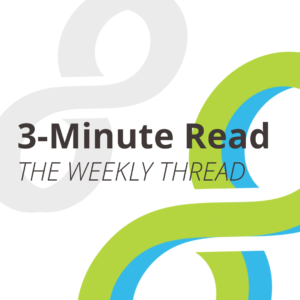Balancing and Assessing Open Access with U-I Partnerships in Mind
 July 17, 2023 — Federal policy on research impacts all facets of the research ecosystems, from organizations–universities and companies—to individuals (students and policymakers). Awareness of the policies and their potential outcomes ensures that all can weigh the benefits and challenges of their implementation. Open access emphasizes the value of knowledge sharing and access to resources and data.
July 17, 2023 — Federal policy on research impacts all facets of the research ecosystems, from organizations–universities and companies—to individuals (students and policymakers). Awareness of the policies and their potential outcomes ensures that all can weigh the benefits and challenges of their implementation. Open access emphasizes the value of knowledge sharing and access to resources and data.
It also presents potential challenges. Because open science policies bring both benefits and risks to university-industry partnerships, it’s critical to build these open science policies with collaborations in mind.
Opening and closing doors
In August 2022, the White House Office of Science & Technology Policy (OSTP) issued a memorandum mandating that all federal agencies supporting research develop public access policies to require federally-funded research and supporting data that meets certain requirements be made publicly accessible without embargo or fees. The deadline for federal agency policy revisions is December 31, 2025. The transparent and immediate sharing of research outcomes and data can both support and inhibit collaboration.
This memorandum requires federal agencies to create guidelines that will ultimately determine when and how research outcomes will be shared. While the memorandum is restricted to federally-funded research, the policies and procedures put in place by federal agencies that provide the bulk of fundamental research funding in the United States are likely to have far-reaching effects. Since U.S. universities receive 55% of their research funding from the federal government, the research compliance approaches they implement to meet federal requirements are likely to impact industry-funded projects as well.
Sharing research outcomes and data allows scientists to conduct experiments that interrogate the reproducibility of results and also makes it easier to build on pre-existing work. In short, the open exchange of pre-competitive research outcomes can enable new discoveries and innovation.
But open sharing of results and data can also introduce challenges around intellectual property (IP) protections. While the memorandum specifically cites IP protection as a reason that access to federally-funded research results may be limited, it does not guarantee that every federal agency will agree with research institutions’ interpretation of what should be openly available (and what should not). IP plays a critical role in supporting research and innovation. While the importance of IP protections is well-known by those focusing on tech transfer and commercialization, the need to safeguard appropriate IP protections is sometimes downplayed by agencies focusing on fundamental research. As U.S. agencies such as the National Science Foundation and the Department of Commerce put research dollars behind large innovation consortia with a technology translation focus (e.g., NSF Engines and Tech Hubs), the historical focus on fundamental research (usually precompetitive) is shifting. How open science treats those new program research outcomes is a story yet untold.
Why it matters
Open science offers exciting possibilities in the world of innovation and discovery. More accessible scientific findings result in better science—research can be reproduced more easily, cited and read more broadly, and built upon by a vast network of researchers. Industry can also benefit from open science because it increases access to research from a variety of sources–not just their respective research partners—while imposing a lower financial burden (the cost of scientific journal subscription and article access). Accessible data promotes a culture of transparency and collaboration in research, ultimately making science outcomes available to anyone in a more inclusive and impactful research ecosystem. (To learn more about upcoming UIDP discussions on data-sharing approaches, click here.)
We want to hear from you. What do you think about institutional open access policies, and what do they mean for research partnerships? Let us know on our LinkedIn profile.


